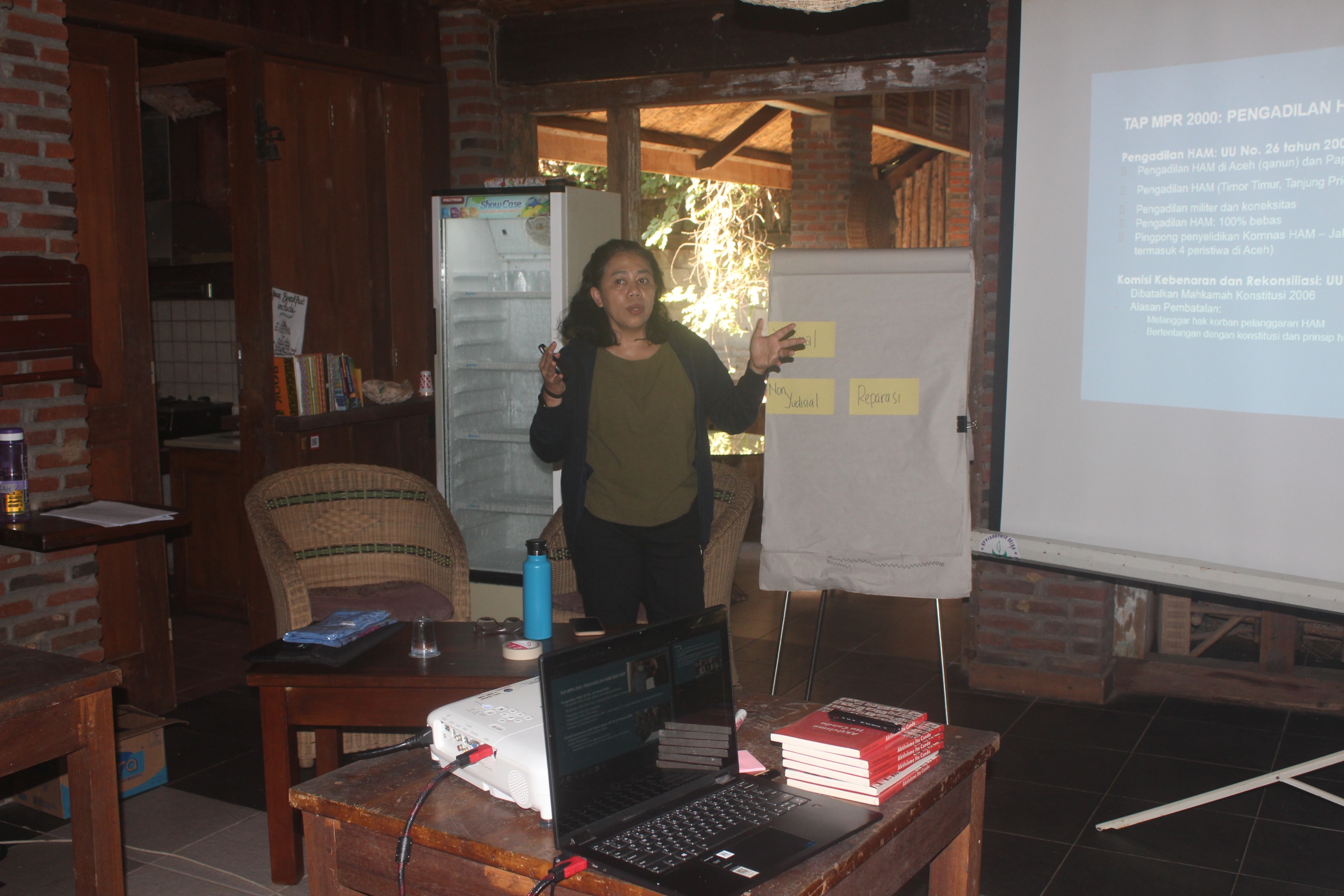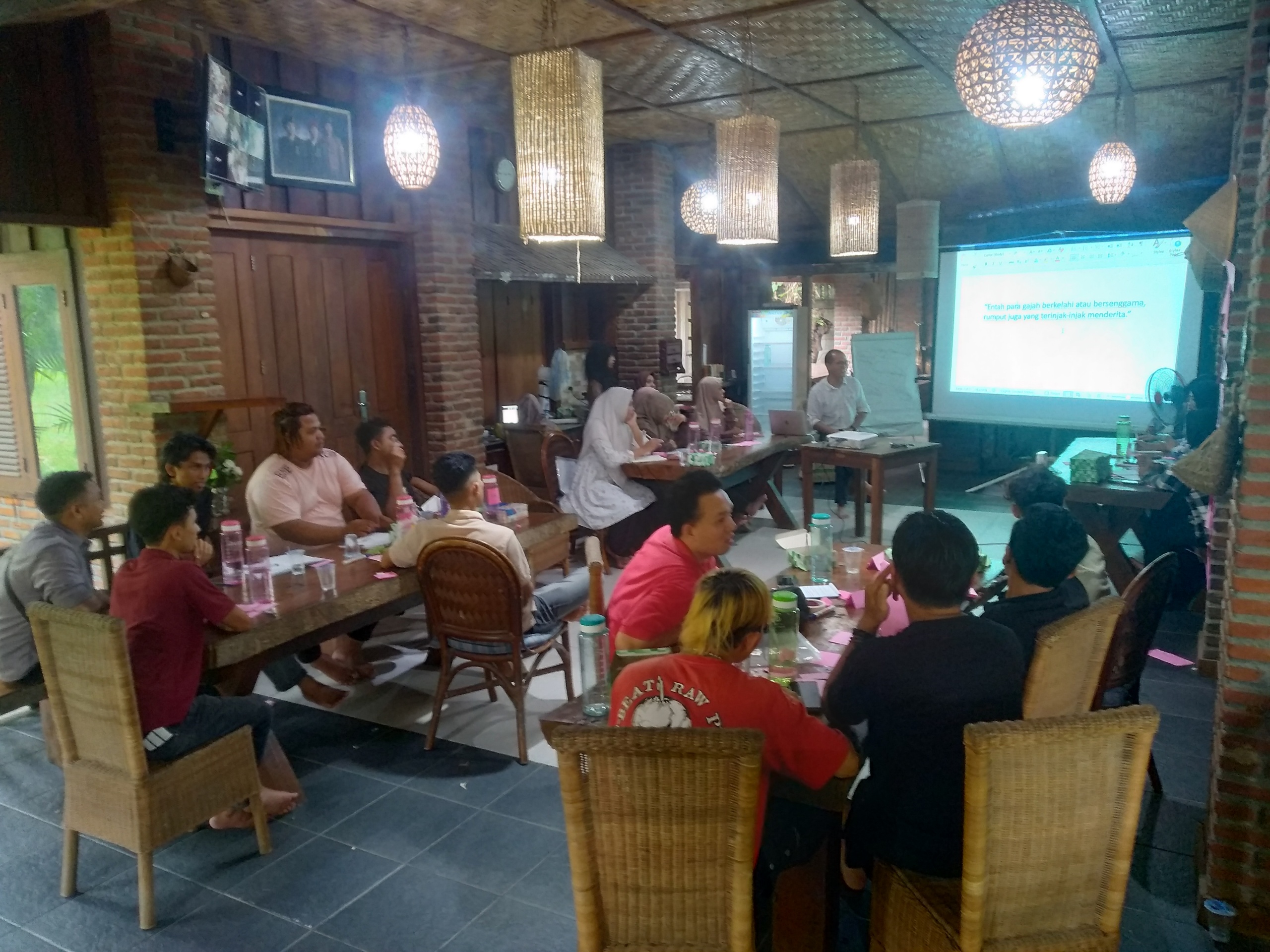
In conjunction with International Human Rights Day, 11 men and 8 women joined a six-day programme of the School of Human Rights and Transitional Justice. The School which started in 2009 is run by Kontras Aceh, an AJAR partner and an NGO in Banda Aceh. Lively discussions followed the sharing of diverse material from resource persons and screenings of short films.
On 4 December, KontraS Aceh coordinator Azharul Husna briefed participants on the KontraS human rights NGO, while writer Azhari Aiyub explained the timeline of the Aceh conflict. Then Marsen Sinaga shared knowledge on community-based social movements. The highlight of the evening was the screening of short animations on victims in Aceh and Timor Leste, both produced by AJAR. Both films led to intense discussions until late into the night.

In the film “8:45” an Acehnese male survivor recites his experience of detention and torture, while in “Konta sai”, a female survivor from Timor Leste finds her voice after years of silence.

On the second day, a resource person of the School of Human Rights, Marsen Sinaga, introduced participants to the universal social, political, economic and cultural rights, all guaranteed in Indonesia’s amended 1945 Constitution. A discussion on human rights for victims of abuse was led by Aulianda Wafisa, the director of the Banda Aceh Legal Aid Office (LBH Banda Aceh).
On December 6, Azharul Husna shared material on human rights and gender, which also discussed participants’ perspectives on their social construction of gender. They further looked at the Aceh conflict and its impact on female victims. In the next session, KontraS deputy Fuadi Mardhatillah explained social diversity in Aceh and the fulfillment of the right to establish places of worship.
The evening featured another film screening, of “Satu Kampung Tiga Cahaya” (One village, three lights), produced by students of the Ar-Raniry Islamic State University (UIN Ar-Raniry) in Banda Aceh. The film describes tolerant villages in diverse areas in Aceh, which is labelled an intolerant province for non-Muslims.
On the fourth day of 7 December, the Regional Program Manager of AJAR, Indria Fernida, outlined Indonesia’s “Reformasi era” since 1998. She shared reform commitments with a human rights perspective in the security institutions of the police and military. Participants then discussed why such reform is urgent, reflecting on the militarism of over three decades under strongman president Soeharto. The next day, Indria shared basic advocacy skills, as well as the dynamics and impacts of efforts to resolve past human rights violations in Indonesia.
On 9 December, Azharul Husna and Afridal Darmi, the former chair of Aceh’s Truth and Reconciliation Commission (KKR Aceh), briefed a session on transitional justice. The session included civic initiatives of truth-seeking and the continued work of the TRC in Aceh, the first of its kind in Indonesia.
The programme closed on International Human Rights Day, 10 December, featuring participants’ follow-up plans. Their proposed plans included research and dissemination of human rights knowledge among themselves including people with disabilities; social media campaigns on past human rights violations; and involvement in advocacy with KontraS Aceh, including through internships.